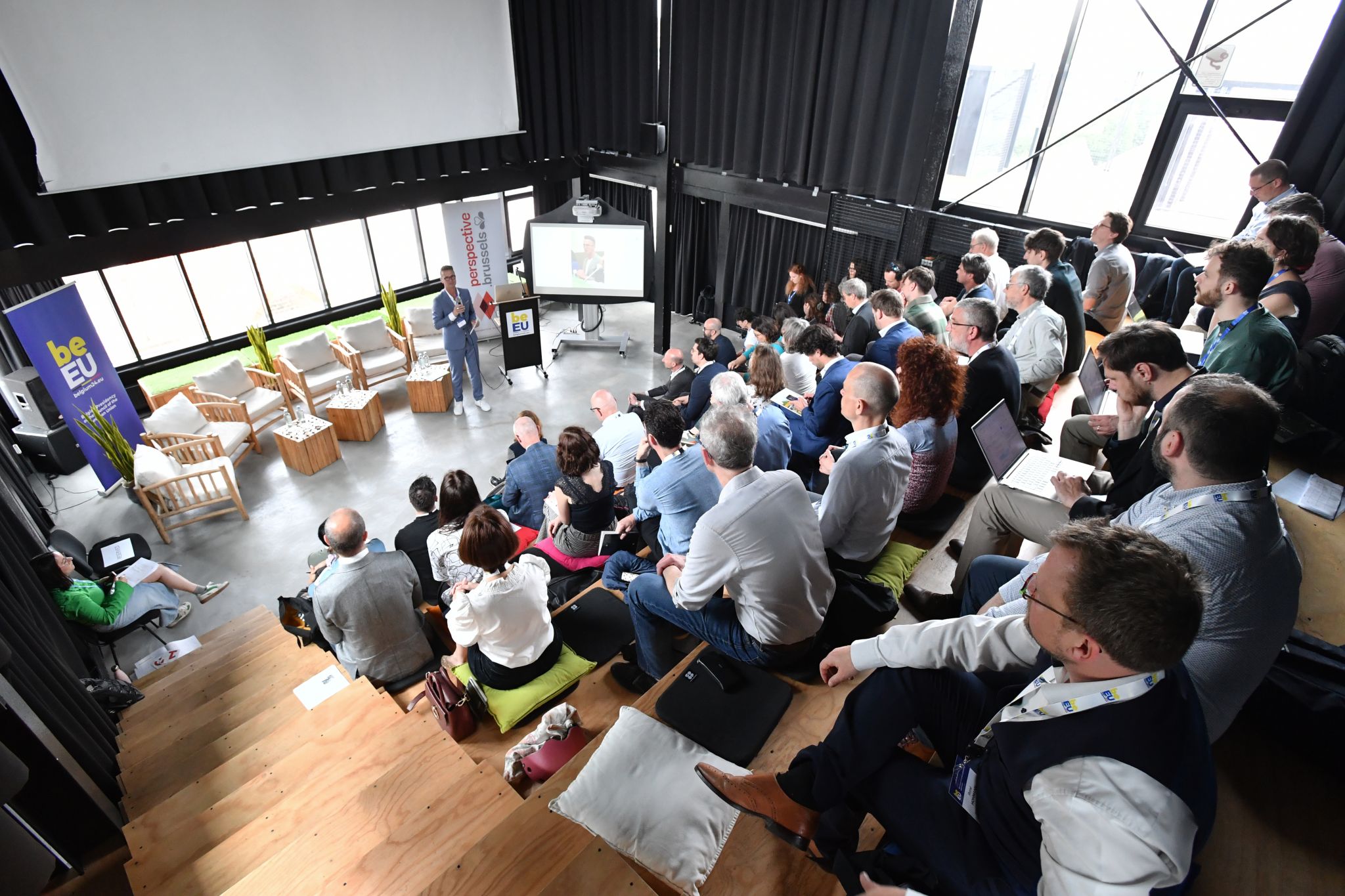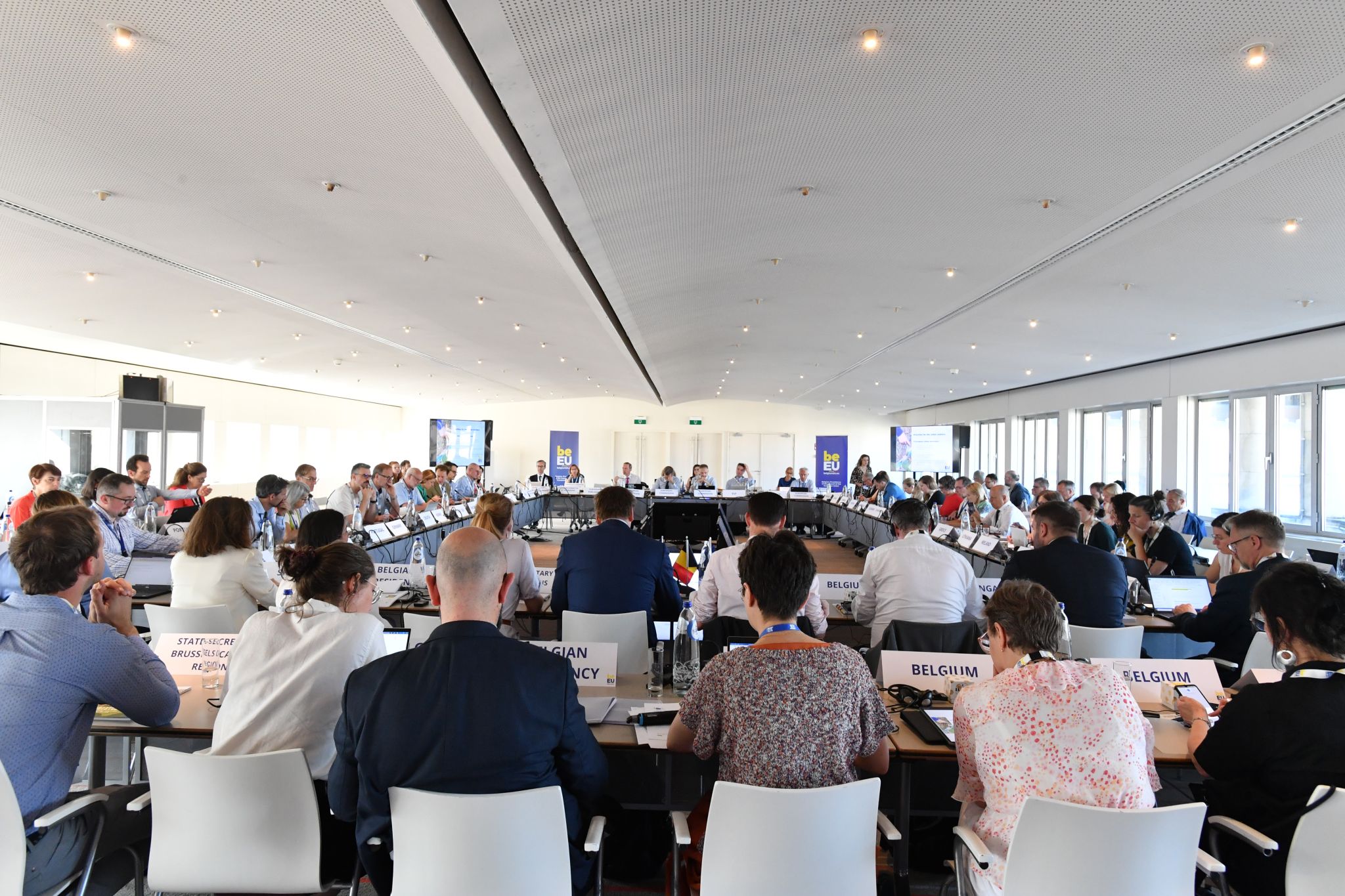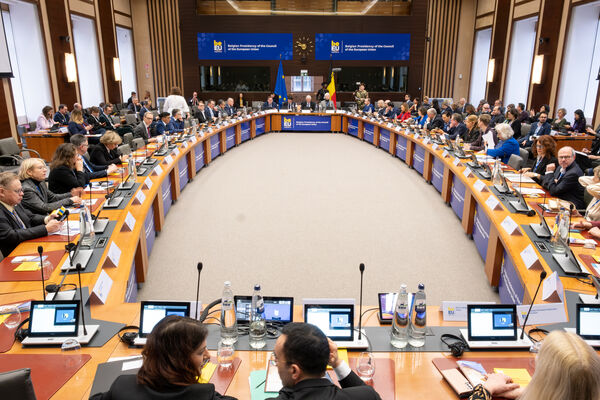A presidency focused on cities
Over the past six months, the Brussels-Capital Region (BCR), represented by perspective.brussels, chaired the urban policy component of the Belgian presidency of the European Union. Six events were organised that brought together a wide range of participants. These included representatives from European institutions, mayors, networks of cities, directors-general and experts from Member States, planning agencies and urban planners.
In urban affairs, the Belgian presidency was a presidency “that cares about cities”. It has prioritised urban issues, making them a cornerstone of its actions. Notably, this is the first presidency to actively involve cities in programme development at every stage of the process.
The presidency has made significant progress in the three priorities of its programme:
- The cities’ call for an ambitious European urban policy for 2024-2029;
- Recognition of the territorial approach, spatial planning and metropolitan governance as a means of meeting future urban challenges;
- Continued implementation of the Urban Agenda for the EU.
It should be noted that the next two presidencies, Hungary and Poland, have announced that they will continue to work on these three priorities on the basis of the progress achieved under the Belgian presidency.
The cities’ call on the European institutions
One of the central elements of this presidency in terms of urban policy is the “Brussels Declaration of European Mayors“. This joint declaration by mayors and networks of cities suggests concrete priorities and recommendations to the European institutions in favour of strong urban policies and greater involvement of cities and metropolitan areas in the next mandate of the European Parliament and the Commission.
Initially signed by 36 mayors at a high-level political event organised by the Belgian presidency in Brussels on 24 January 2024, the declaration now has more than 170 signatories.

Local solutions for global challenges
Europe’s cities are diverse, but they share common challenges and will face similar issues in the future: demographic change, social, economic and territorial cohesion, and the pursuit of climate and environmental sustainability objectives. These challenges will only intensify in the coming years, underlining the need for a proactive approach and integrated solutions tailored to the territory.
perspective.brussels wanted to take advantage of this presidency to emphasise the importance of the role of urban planning in achieving European objectives. Therefore, it launched a study exploring how EU policies and regulations can have an impact on urban planning. It identifies how European institutions can better involve cities and planners in the development and implementation of these European policies and regulations.
Then, with the aim of encouraging collaboration between public agencies and municipal urban planning departments across Europe, perspective also organised the first European seminar for urban planning agencies. It was devoted to the theme of urban sprawl and qualitative density. As part of this seminar, the publication “Should I stay or should I go? Urban sprawl, density, and a new planning agenda for Europe” was published. Following a call for contributions, it highlights innovative and inspiring European projects to tackle these global challenges. Beyond the presidency, perspective is pursuing this cooperation dynamic to ensure that the voice of urban planners is better heard by the EU.

Finally, the presidency has stressed the importance of promoting metropolitan governance and urban-rural cooperation, and a strong post-2027 EU cohesion policy that supports cities.
Intergovernmental meetings to advance the implementation of the Urban Agenda
Meetings with representatives of the 27 Member States have led to the launch of two new thematic partnerships for the EU Urban Agenda:
- “Water-Sensitive Cities”
- “Decarbonisation of buildings: Integrated renovation programmes and local heating and cooling plans”
Additionally, a “compact cities” partnership was planned for 2025, and the next Cities Forum will be held in Krakow, Poland.

For more information, the presidency conclusions detail the results achieved under the Belgian Presidency in the urban field.



